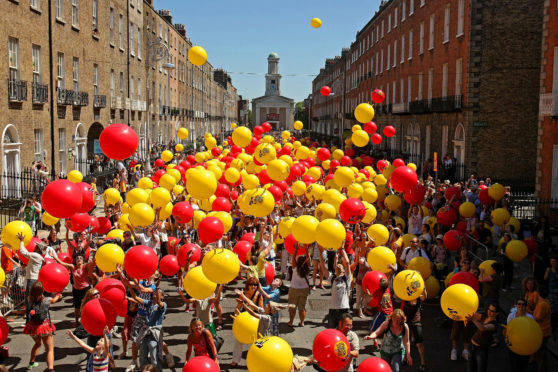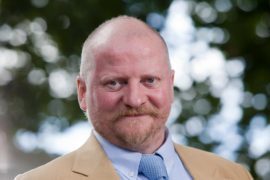You’ve got hope, haven’t you? That tomorrow will be kinder, fairer. That the Beckhams will find themselves banished to Rockall with Gordon Ramsay’s brood, sentenced to spend eternity with Richard Branson while Susan Calman narrates from a leaky coracle offshore.
Hope that children’s bouncy space hoppers will be renamed Borises in recognition of the substance and control our prime minister has shown in this crisis.
More generously, hope that society will become fairer, the workplace less ruthless, nurses better paid and the super rich made responsible for their losses as much as their profits. Hope that we no longer tolerate poverty, cramped housing, the gig economy.
The left and the pro-indy parts of society have been full of hope. The Guardian carries endless “what ifs” and even right-wing commentators are getting in on the act, allowing themselves to imagine something different. For the Nats, it is as it ever was. If only Britain weren’t so inept, if only we had all the powers, then we could click our heels and go back to Kansas.
For the indy movement, it’s the same old problem. Lots of authors doing “what ifs” and “if onlys”, but no one doing how. The SNP-led government don’t much like how either – the last time an official document hinted at the details of indy was in 2013. We’ve had seven years of Bad Britain, but not a peep on Better Scotland.
The how is always complex. Not impossible, not disastrous, just complicated. Nicola Sturgeon knows this, and so the subject is avoided. But the how of yesterday looks like two plus two compared with the reality of today.
The Fraser of Allander Institute warned the virus hit to the Scottish economy would be dramatic some weeks ago. Never forget, the FoA is led by Graeme Roy, Alex Salmond’s favourite economic adviser in the run-up to 2014.
Roy’s former colleague, Gary Gillespie, chief economist in the Scottish Government, has set these concerns in stone. In a report this week he warns that our economy could shrink by a third. That is a humongous amount, to use a non-technical term. It’s vast, huge and terrifying.
It would mean mass unemployment and much lower tax revenue for the government, which in turn would lead to an increase in government debt.
There is little room for hope. Our oil sector relies on high prices to fund riskier exploration with a lower rate of return. Scotland’s oil has entered its golden years, and that means more cost for less profit.
With global oil prices crashing, the prospects for Aberdeen go from granite grey to crude black. Obviously no one can tell how events will play out, but it’s not unreasonable to model a Scottish economy with no oil at all.
Another big earner is tourism. Hospitality has already been hit hard by the lockdown. Who doesn’t yearn for a bar and a pint? The prospects look grim. Domestic hospitality – us on a Friday night – may never quite recover without an antidote to the virus.
International tourism looks fatally wounded. Even if this virus is conquered, another will come along. Pandemics have been the world’s big threat for decades. In that light, millions of us flying around in cramped planes may never look desirable again.
It is not all gloom. As a supplier of green energy, our new oil is already on tap. A well-educated workforce coupled to a reasonably honest and transparent society means recovery is ours to invent.
But it will require heroic optimism in a world shaken by the virus. The United Nations warns some countries will be blighted by famine. In others, the economic shock will lead to political horror.
It will mean being very clever on the how. The left talks of universal basic income, of nationalising industries and online platforms. The Nats’ vision of a new Scotland is imagined like a 1970s porn film, lots of Vaseline on the camera lens to make for a blurry picture. Whatever is actually going on, we are encouraged to think it’s desirable.
Both presume a strong economy with limited government debt. The lefty vision assumes government would borrow to build utopia. The indy one starts from accepting a share of UK Government debt.
Right now, the government has borrowed far more than Jeremy Corbyn speculated. It’s very hard to see how a new reforming government in the mould of the post-war Labour administration could afford much in the way of hope.
As for the nationalist model, it looks smashed. A much smaller economy taking on much larger debt? Perhaps smart economists can make it work, but it would be nothing short of miraculous.
Our dreams for a better world are justified. Those families on low income, or none at all, locked down in tiny flats, eating bad food and worrying for tomorrow – of course they deserve something better. We deserve something better.
But words are free. Any fool can dream. For things to become true, you have to crack the how. Real hope lies in hard truths.











